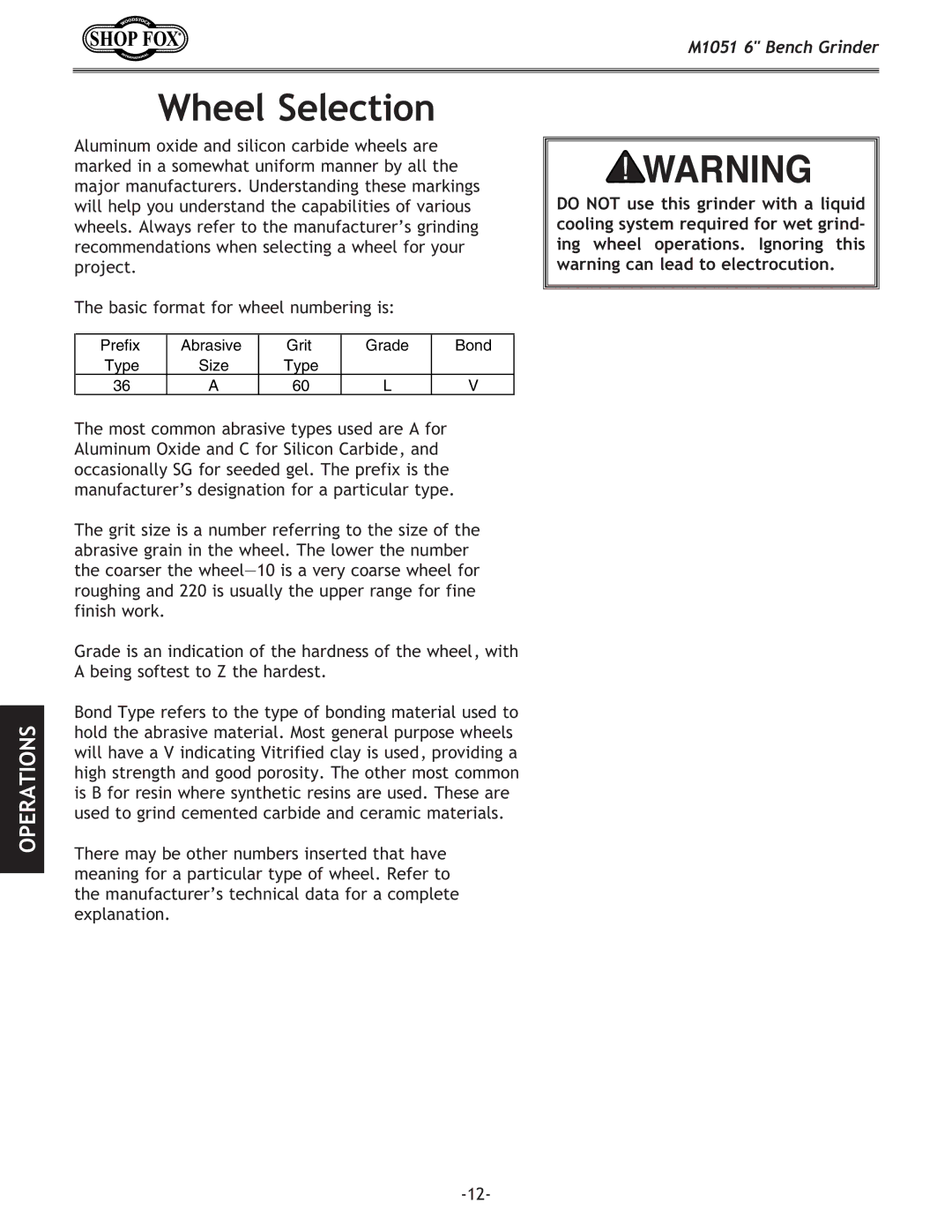
M1051 6" Bench Grinder
Wheel Selection
OPERATIONS
Aluminum oxide and silicon carbide wheels are marked in a somewhat uniform manner by all the major manufacturers. Understanding these markings will help you understand the capabilities of various wheels. Always refer to the manufacturer’s grinding recommendations when selecting a wheel for your project.
The basic format for wheel numbering is:
Prefix | Abrasive | Grit | Grade | Bond |
Type | Size | Type |
|
|
36 | A | 60 | L | V |
The most common abrasive types used are A for Aluminum Oxide and C for Silicon Carbide, and occasionally SG for seeded gel. The prefix is the manufacturer’s designation for a particular type.
The grit size is a number referring to the size of the abrasive grain in the wheel. The lower the number the coarser the
Grade is an indication of the hardness of the wheel, with A being softest to Z the hardest.
Bond Type refers to the type of bonding material used to hold the abrasive material. Most general purpose wheels will have a V indicating Vitrified clay is used, providing a high strength and good porosity. The other most common is B for resin where synthetic resins are used. These are used to grind cemented carbide and ceramic materials.
There may be other numbers inserted that have meaning for a particular type of wheel. Refer to the manufacturer’s technical data for a complete explanation.
DO NOT use this grinder with a liquid cooling system required for wet grind- ing wheel operations. Ignoring this warning can lead to electrocution.
